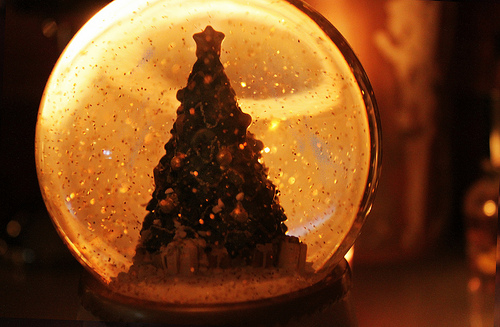See? Magic.
/I am sitting on my front porch with a cup of coffee, watching the sun set on the brick building in front of me. The sun behind me, and the world is a beautiful place, filled with red and yellow and gold. My chair is comfortable, my coffee is good. The dogs are sniffling around the front yard. I can hear the sounds of children, in those last few moments before the call to come in for the night will go around the neighbourhood. It was a busy week of travel and meetings, it was a busy Saturday of errands and household things, and I have this brief time – with nothing but to sit and enjoy, watch the changing of the light.
They call this the magic hour.
What is grief, but a form of magic, I ask you? What is the terror and the pain and the horror that I found myself in four years ago, but a form of magic, a spell, an incantation that was thrown over me? It is easy to imagine the vile and loathsome creature that took my son away from me – it is easy to think of a cave, a foul smell and the guttural words of a spell. That seems as good and as reasonable an explanation of any about why tragedy struck me, struck mine, struck you and struck yours.
Magic, all around us. Old order magic with no waiving of hands, muttering of incantations. Magic, hiding in plain view. Magic that is good and magic that is so terribly evil it is impossible to behold. Magic held into balance, just barely.
And it seems a reasonable explanation that the magic of that spell would slowly wear off, that I would be able to find my way in the world. I look the same as I did back then, more or less, I walk and talk but I am utterly changed. See? Magic.
I believe in goodness and mercy, all the days of my life, in spite of what happened. Perhaps I believe more strongly now. See? Magic.
And on my front porch, watching the liquid line of gold fall towards the ground, I can be captivated by sudden and ephemeral beauty. See? Magic.
Grief then a form of magic. It seems appropriate to think that – the best explanation. So much of our world seems fragile, improbable. The quickness of the life and death, the peace of a Saturday night sunset. The curve of my son’s ear, the way his finger was crooked just like mine. See? Magic.
And this. The world I live in now. This wholeness and this peace that I find has come over me. My contentedness and my delight in beauty. I wouldn’t have believed it possible. See? Magic.
It is customary, at the end of a Glow Post, to ask a series of questions. This is my last post on Glow, and I would beg your leave to simply say thank you. It has been an honour for me to write here. I thank you that you read. I wish you comfort, and when you are ready for it, magic.



